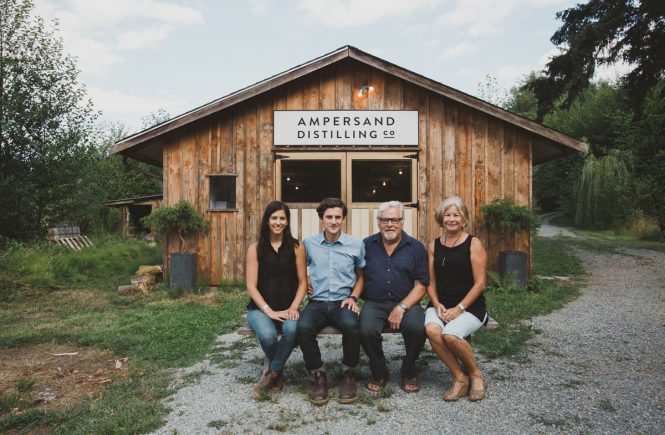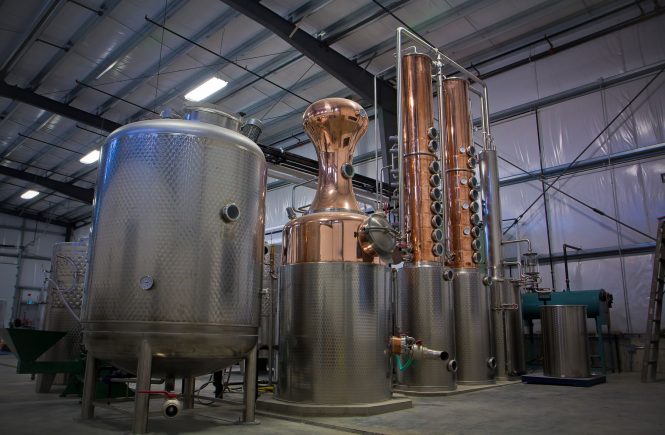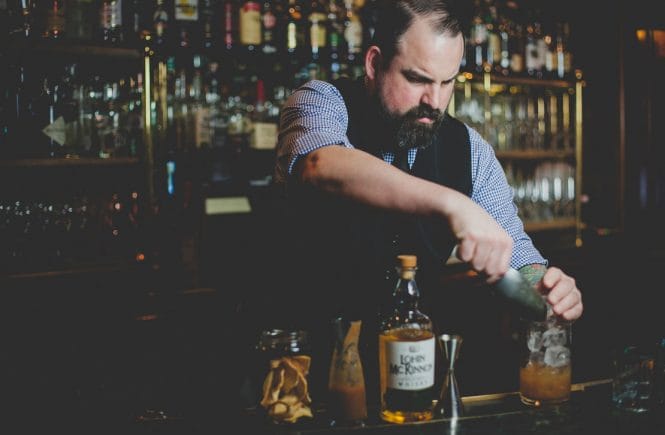It’s back to the future with de Vine’s Ancient Grains
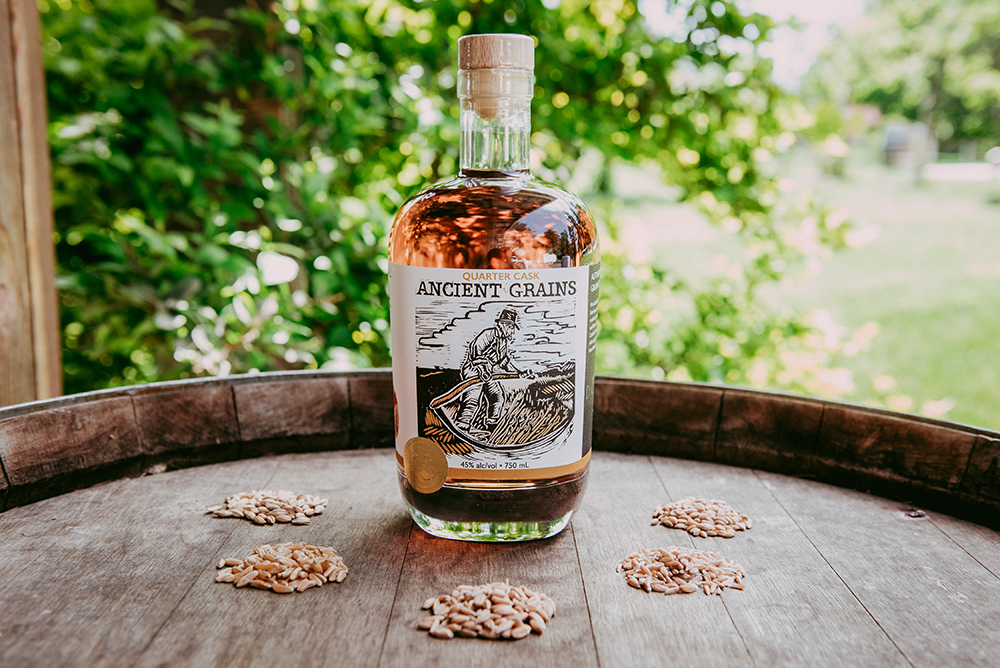
It’s been a minute since we’ve had to worry about those pesky little things called grades, but for distillers like Saanichton’s de Vine Wines & Spirits, report card day still comes around each year with the release of Jim Murray’s Whisky Bible and the reviews and scores therein.
The guide, curated by pioneering English whisky expert Jim Murray and his team, looks at products from regions such as England, Wales, Scotland, Ireland, Kentucky, Japan and Canada in search of the world’s best whisky. Considered the most comprehensive compilation of whisky tasting notes and scores in the world, the just-released 2019 volume has snifted, tumbled and copita’d through more than 4,700 whiskies to give them each a grade out of 100, based on nose, taste, finish and balance.
And, in this latest edition, on page 293 under the heading “Canadian Single Malts”, was a new entry: de Vine Spirits’ Quarter Cask Ancient Grains Batch No. 1, boasting a delightful review and a score of 91.5.
“A beautiful essay in complexity,” the note reads, in part. “The varied grains spelt, emmer, einkorn, khorosan and, of course, locally grown organic B.C. barley have been put together to delicious and fascinating effect.”
It goes on to praise the alternative whisky’s distinct bourbon persona, calling it a “real entertainer.”
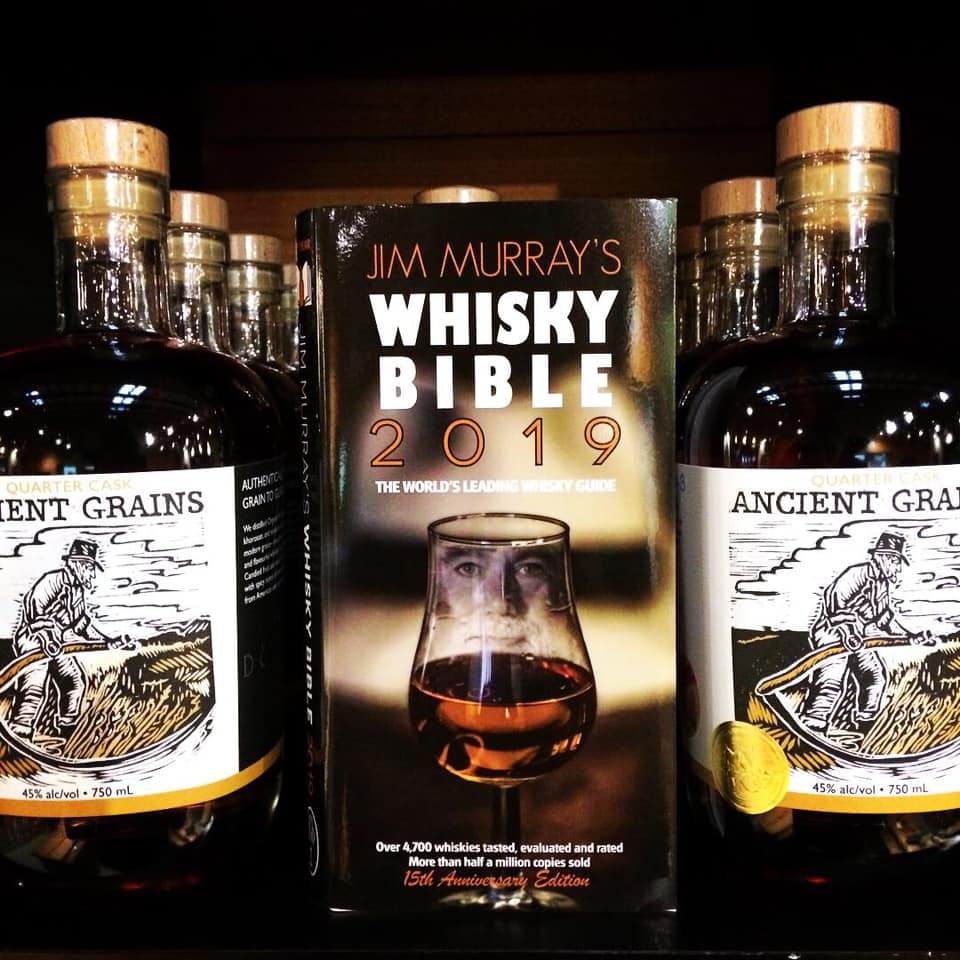
Batch No. 3 of this unique “young” whisky—labelled as such because it has not been aged for three years in a barrel—was released this weekend on the pastoral grounds of de Vine’s organic vineyard and craft distillery on Vancouver Island.
Backed by a fiddle band, the release of the latest Glen Saanich Single Malt (itself a 94-pointer), and some free nosh, roughly 200 people stopped in to taste the ancient creation.
Master distiller Kenneth Winchester, speaking with The Alchemist just two days after the release, admits he had never actually tasted a whisky made with these grains before he endeavoured to make one.
“It was very experimental,” he says, with a chuckle. “It’s the only one of its kind in Canada. Maybe the only one anywhere, really. Whisky distillers call it a mash bill—basically a recipe—so it’s a five-grain whisky. There are other people in the States, particularly, playing with these other grains, but I have not heard of anyone putting all four of those ancient grains together.”
So, he and co-distiller Kevin Titcomb were understandably buoyed to see Ancient Grains included in the Bible’s 2019 report.
“We were thrilled last year when Glen Saanich got a 94 in the Whisky Bible. It was only 18 months old at that point and it was literally in the same ranking as some 18-year-old scotch whiskies,” Winchester recalls. “And then the Ancient Grains got a 91.5, so I was thrilled about that. Because it’s not an old-school scotch-style whisky, or an American bourbon. It’s something completely different, so that was great to be recognized.”
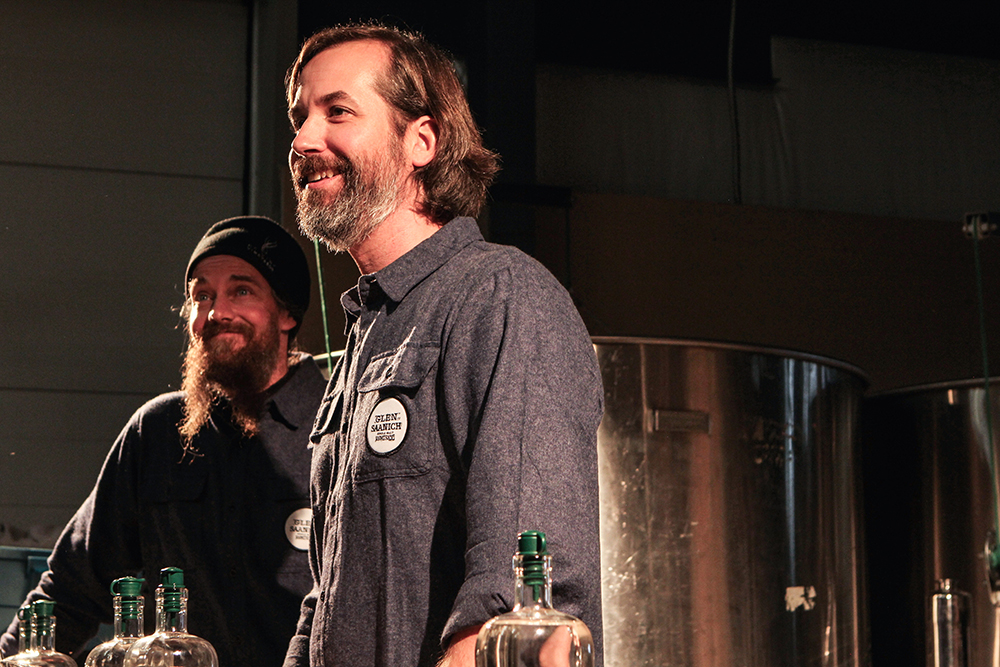
Ancient Grains might be the first of its kind in the country, but it’s not alone in a surge of experimental styles, from cask finishing to heritage ingredients, pushing the world of whisky in exciting new directions.
“Until about 10-15 years ago, there were very distinct styles [of whisky],” Winchester explains. “Each single malt from each distillery had a distinct profile, and I think that’s slowly but surely changing.
“In the States, originally, and now in Canada too, we have more freedom as far as our ingredients for whisky,” he continues. “But whisky has been made traditionally out of all sorts of grains—any grain, really—and we lost that in Prohibition. So I think it’s almost going back to the future to start playing with these alternative grains. We always make pretty small batches when we try something new, whether it’s slivovitz or, gosh,” he pauses, “we just made a nocino—a walnut liqueur—because we have a walnut tree on the property. So we make small batches and we try them, and nine times out of 10 people really love it and we wind up making more and more and more.
Such was the case with Ancient Grains. “It was kind of a pet project that we tried, and people really liked it.” Especially the discerning palates over at the Whisky Bible bureau.
Add this latest accolade to Winchester and Titcomb’s growing mantle of awards, and you could say they’re on the honour roll.
More with Ken Winchester:
On the inspiration for Ancient Grains:
“Once we created Glen Saanich, I thought, ‘Well let’s do something completely different. Let’s do something nobody else is doing, like an alt-whisky,’ as I call it. So we put together kamut [khorasan], spelt, emmer, einkorn and a bit of barley and created this completely different style of whisky. It’s a little bit more toward a bourbon style.”
On their ingredients:
“These grains are the ancestors of modern wheat, really. They go back thousands of years and they’re unmodified which is kind of appealing. Most modern grains have been hybridized over the years.”
On being a “young” whisky:
“We will keep barrels [of Ancient Grains] aside for, who knows, five years, seven years, ultimately. But because it went into new oak and quarter casks, which are smaller barrels, it aged pretty quickly.”
On the difference between Batch No. 1 and No. 3:
“I think what happens with the first batch you’re tasting more of the barley and the flavours that come from the barley. Therefore, you’re kind of tasting the terroir. Over time the barrel starts to contribute more and more to the whisky. The barrel would be more the baking spices: cinnamon, clove, nutmeg, vanilla, allspice, pepper. Those notes start coming into the spirit.”
On the de Vine experience:
“I always say the four foundations of a distiller are quality, price, packaging and story. Of the four, I think story is huge. Whisky goes back a thousand years. There’s a lot of stories behind it. And when people come up here, they see the property, it’s beautiful for one thing. Stunning view. It’s organic.
“And one of the things I love to say is that whisky is basically just distilled beer. It kind of takes people aback a little bit. So we explain how we actually have kind of a brewery within the distillery—we have a mash tun and fermenters and we make beer twice a week—but then we cook it and it becomes whisky. So people go away with the story behind it. And it’s fun.”
—Kelsey Klassen

